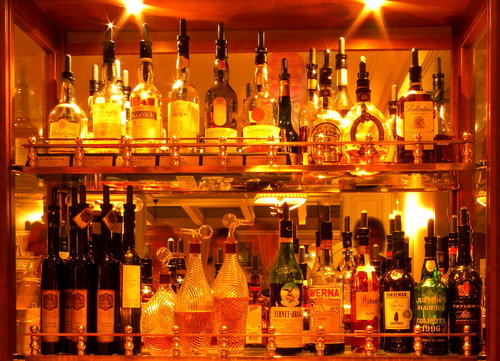I don’t really like drinking anymore.
I’ll have maybe 3 drinks a month… and those will usually be consumed on dates (or as part of some landmark celebration with a close friend).
It’s funny, when I first decided to stop drinking I was kind of worried.
Would people think I’m weird? Would my dates stare at me like some weird freakazoid? Would I stop getting invited to parties?
In short: no.
No one cared.
In fact, a lot of people started to tell me how they were “trying to stop drinking as much” and that they “didn’t like how it makes them feel”.
Yet, there they were, week after week, throwing away the cocktails until the indigestion arrived.
This topic was on my mind during the 4th of July holiday. I’ve been hanging out in Seattle with some of my best buddies, and we’ve been enjoying the city’s culinary and spirituous delights.
After waking up on the second day, I knew that I had hit my limit. I was going to take it easy and maybe enjoy a beer or two in the coming days…
My friends also complained about their wicked hangovers, and how out of it they felt, but they were back at it again later that afternoon—chugging beers and ordering stiff cocktails.
It didn’t seem like they were particularly enjoying their drinks, and so I prodded them a little to see why they were still ordering b00ze.
I’ve asked this question a thousand times before, and so I was fairly certain of what I was going to be told.
“Because, I just feel like a beer…”
(Really? You were just talking about how you never wanted to drink again)
“Because we’re at a bar.”
“Because it would be weird not to”
And so on.
Hey, at least they were being honest.
From a psychological point of view, their behavior was unsurprising. In fact, it was a textbook example of the confluence of two psychological phenomena:
- The Spotlight Effect
- Social Pressure / Norms
The Spotlight Effect refers to the fact that everyone assumes that they’re getting more attention than they actually are.
We’ve all been there: we drop a drink at a party and stand in shock as we expect the music to stop and for every head to turn in our direction… or we assume that everyone will notice the Everest-sized pimple on our forehead, when it looks like a barely imperceptible dot from their point of view.
The fact of the matter is that most people are too wrapped up in their own heads, and too busy thinking about how they look, to put much attention on you and the potentially embarrassing thing that you can’t get your mind off of.
So while you may think that everyone is going to notice that you don’t have a drink in your hand, and judge you for it, that probably won’t be the case. Maybe 1 or 2 people will notice… but who cares about those two weirdos?
The second phenomenon I mentioned above is “social proof”. We humans are social creatures, and we’re thus quite attuned to the beliefs and behaviors of those around us. I could talk about this topic for hours… but, for now, it’s just important that you realize that we have a magnetic attraction to copy what we see as socially “normal”. So if you’re in a bar and everyone has a beer in their hand, you’ll feel weird if you don’t. If everyone is drinking a stiff, artisanal cocktail, you’ll feel weird if you don’t.
It’s not rational. It’s not based on your needs, wants, and desires… it’s just the pull of the herd.
For years, I did the same exact things as my two buddies. I have 0 judgement towards them. I just think that this is an interesting illustration of a powerful psychological cocktail (pun intended) in the wild.
One of the things that helped me overcome my intense desire to “fit in” in these contexts (and often drink more than I’d like) was a realistic understanding of my personality.
I’m fairly high on the “neuroticism” spectrum, slightly introverted, and less-than-ideal in terms of self control… Understanding this really helped me come to terms with my behavior, and has given me a sense of why I was acting the way I was in highly-social (and kind of stressful) situations.
I’m not going to act like I’m perfect, never succumbing to social pressure… but I am better about putting myself into the right situations, so that I can have a good, social time on my terms. In addition, now that I have an explicit understanding of what’s going on, and a way to label and talk about it, I’m able to consistently analyze why I acted the way I did… and to therefore get a little better each and every week.
If you want to gain these kinds of insights into yourself, and better understand why you do what you do, you should purchase my personalized “Habit Blueprint Report”.
In the report, you’ll learn:
- How you compare to others across every personality trait
- Where your personality is weak and where it’s strong
- The aspects of your personality that are likely going to bring you trouble… and strategies you can use to minimize the damage
- The three key things you need to do in order to use your personality to accomplish one of your current goals
- General principles you should follow, no matter what goal you have in mind, to have a better chance of succeeding
These reports actually take some time for me to create, so I’m charing $297 for each personalized report: The Habit Blueprint





